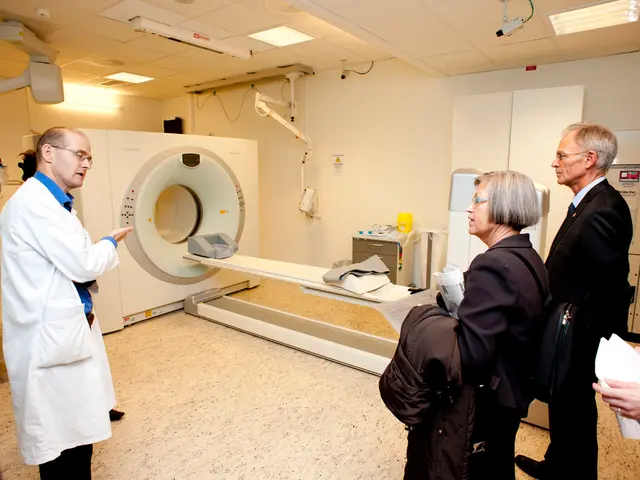Caffeine: Its Advantages, Disadvantages, and Influences
Caffeine, a stimulant naturally found in over 60 plant species, is a popular ingredient in many foods and drinks. However, consuming high levels of caffeine, especially from artificially caffeinated sources, can have significant long-term health effects.
### Cardiovascular Problems
Chronic high caffeine intake can lead to hypertension (high blood pressure), increased heart rate, and a higher risk of cardiovascular diseases. This is particularly noted with high-caffeine energy drinks, which contain additional stimulants beyond caffeine itself. Unlike coffee, some caffeinated products with added supplements may increase cardiovascular risks due to interactions.
### Sleep Disturbances and Mental Health Issues
Long-term caffeine consumption is associated with insomnia, anxiety disorders, and mental fatigue. Sustained high caffeine use can also lead to elevated cortisol levels and adrenal fatigue, impacting overall stress response and energy levels.
### Gastrointestinal and Nutritional Concerns
High caffeine doses stimulate stomach acid production, which may cause or worsen acid reflux, ulcers, gastritis, stomach bloating, and a burning sensation. Caffeine interferes with the absorption of essential nutrients such as iron and calcium, potentially leading to anemia and weakened bone health.
### Dependency and Withdrawal
Regular high caffeine intake can lead to physical dependence, causing withdrawal symptoms when caffeine is not consumed.
### Other Effects
Overconsumption can cause frequent urination and dehydration, increase the risk of dental enamel erosion and decay, and possibly weaken immune function over time.
### Specific Risks of Added Caffeine in Non-Natural Sources
Energy drinks and other artificially caffeinated products may carry additional risks beyond caffeine alone due to added supplements and stimulants. These products can cause adverse interactions that are not present with natural caffeine sources like coffee or tea, possibly making long-term effects more severe or complex.
### Populations at Higher Risk
People with high blood pressure, gastric disorders, iron deficiency, sleep disorders, pregnant or breastfeeding women should be especially cautious with high caffeine intake from any source.
In summary, the long-term effects of consuming large amounts of caffeine—especially from artificially caffeinated foods and drinks—include sustained cardiovascular stress, sleep and mental health issues, digestive problems, nutrient malabsorption, physical dependence, and potential adverse interactions with other additives. Careful moderation and awareness of caffeine sources are essential to mitigate these risks.
[1] Mayo Clinic. (2021). Caffeine: How much is too much? https://www.mayoclinic.org/healthy-lifestyle/nutrition-and-healthy-eating/in-depth/caffeine/art-20048389
[2] American Heart Association. (2021). Energy Drinks and Your Heart. https://www.heart.org/en/healthy-living/healthy-eating/eat-smart/nutrition-basics/energy-drinks-and-your-heart
[3] National Health Service (NHS). (2021). Caffeine: How much is too much? https://www.nhs.uk/live-well/healthy-body/caffeine-how-much-is-too-much/
[4] FDA. (2021). Energy Drinks. https://www.fda.gov/food/ingredient-additives-packaging/energy-drinks
[5] MedlinePlus. (2021). Caffeine. https://medlineplus.gov/ency/article/002397.htm
- Chronic high caffeine intake, especially from artificially caffeinated sources, can lead to cardiovascular diseases, including hypertension (high blood pressure) and increased heart rate.
- This increased risk of cardiovascular diseases is particularly noted with high-caffeine energy drinks, which contain additional stimulants beyond caffeine itself, causing potential adverse interactions.
- Long-term caffeine consumption can also lead to sleep disturbances, such as insomnia, and mental health issues like anxiety disorders and mental fatigue.
- Sustained high caffeine use can elevate cortisol levels and cause adrenal fatigue, impacting overall stress response and energy levels.
- High caffeine doses can stimulate stomach acid production, causing or worsening acid reflux, ulcers, gastritis, stomach bloating, and a burning sensation.
- Caffeine interferes with the absorption of essential nutrients like iron and calcium, potentially leading to conditions like anemia and weakened bone health.
- Regular high caffeine intake can lead to physical dependence, causing withdrawal symptoms when caffeine is not consumed.
- Overconsumption of caffeine can result in frequent urination and dehydration, increase the risk of dental enamel erosion and decay, and possibly weaken immune function over time.
- Energy drinks, specifically, may carry additional risks beyond caffeine due to added supplements and stimulants, potentially making long-term effects more severe or complex.
- People with pre-existing conditions, such as high blood pressure, gastric disorders, sleep disorders, pregnant or breastfeeding women, and individuals with iron deficiency should be especially cautious with high caffeine intake.
- In summary, excessive caffeine consumption can lead to a variety of health issues, including cardiovascular problems, sleep and mental health issues, digestive problems, nutrient malabsorption, physical dependence, and potential adverse interactions with other additives.
- Health-and-wellness professionals advise careful moderation and awareness of caffeine sources to mitigate these risks.
- Engaging in mental health practices, maintaining a balanced lifestyle, and adopting a nutritious food-and-drink routine are all crucial components of promoting overall health, alongside limiting caffeine intake, as supported by science.








